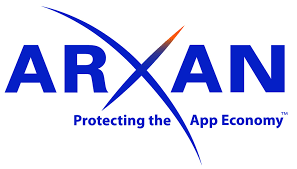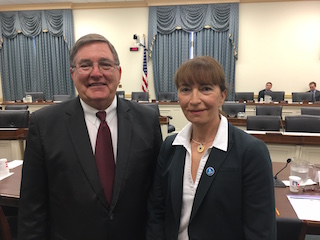mobile health apps
See the following -
8 Out of 10 Mobile Health Apps Open to HIPAA Violations, Hacking, Data Theft
 A new report shows 84 percent of U.S. FDA-approved health apps tested by IT security vendor Arxan Technologies did not adequately address at least two of the Open Web Application Security Project top 10 risks. Most health apps are susceptible to code tampering and reverse-engineering, two of the most common hacking techniques, the report found. Ninety-five percent of the FDA-approved apps lack binary protection and have insufficient transport layer protection, leaving them open to hacks that could result in privacy violations, theft of personal health information, as well as device tampering and patient safety issues...
A new report shows 84 percent of U.S. FDA-approved health apps tested by IT security vendor Arxan Technologies did not adequately address at least two of the Open Web Application Security Project top 10 risks. Most health apps are susceptible to code tampering and reverse-engineering, two of the most common hacking techniques, the report found. Ninety-five percent of the FDA-approved apps lack binary protection and have insufficient transport layer protection, leaving them open to hacks that could result in privacy violations, theft of personal health information, as well as device tampering and patient safety issues...
- Login to post comments
8 Out of 10 Mobile Health Apps Open to HIPAA Violations, Hacking, Data Theft
A new report shows 84 percent of U.S. FDA-approved health apps tested by IT security vendor Arxan Technologies did not adequately address at least two of the Open Web Application Security Project top 10 risks. Most health apps are susceptible to code tampering and reverse-engineering, two of the most common hacking techniques, the report found. Ninety-five percent of the FDA-approved apps lack binary protection and have insufficient transport layer protection, leaving them open to hacks that could result in privacy violations, theft of personal health information, as well as device tampering and patient safety issues...
- Login to post comments
Health Care Data as a Public Utility: How Do We Get There?
 Despite the technological integration seen in banking and other industries, health care data has remained scattered and inaccessible. EHRs remain fragmented among 861 distinct ambulatory vendors and 277 inpatient vendors as of 2013.Similarly, insurance claims are stored in the databases of insurers, and information about public health is often kept in databases belonging to various governmental agencies. These silos wouldn’t necessarily be a problem, except for the lack of interoperability that has long plagued the health care industry. For this reason, many are reconsidering if health care data is a public good, provided to all members of the public without profit...
Despite the technological integration seen in banking and other industries, health care data has remained scattered and inaccessible. EHRs remain fragmented among 861 distinct ambulatory vendors and 277 inpatient vendors as of 2013.Similarly, insurance claims are stored in the databases of insurers, and information about public health is often kept in databases belonging to various governmental agencies. These silos wouldn’t necessarily be a problem, except for the lack of interoperability that has long plagued the health care industry. For this reason, many are reconsidering if health care data is a public good, provided to all members of the public without profit...
- Login to post comments
Humetrix Presents Disruptive Personal Health App Solutions Before US Congress
 As a former practicing physician, data scientist and public health officer, I became a healthcare IT entrepreneur focusing on mobile technology because I believed that the best way to treat patients, improve health outcomes, and reduce waste is to put patients’ critical health information into their own hands, so they can share that information with their physicians when needed. With 68 percent of Americans using a smart phone daily1, and new HIPAA rules giving each of us a legal right to electronically access our health records, consumer facing mobile health applications can be a cure to the information blocking which is still plaguing our health care system. In a healthcare environment in which one-third of expenditures are wasted3 on redundant care, and medical errors representing the third leading cause of death in the U.S. today4, having immediate access to a patient’s health history can literally save lives and also significantly reduce healthcare costs.
As a former practicing physician, data scientist and public health officer, I became a healthcare IT entrepreneur focusing on mobile technology because I believed that the best way to treat patients, improve health outcomes, and reduce waste is to put patients’ critical health information into their own hands, so they can share that information with their physicians when needed. With 68 percent of Americans using a smart phone daily1, and new HIPAA rules giving each of us a legal right to electronically access our health records, consumer facing mobile health applications can be a cure to the information blocking which is still plaguing our health care system. In a healthcare environment in which one-third of expenditures are wasted3 on redundant care, and medical errors representing the third leading cause of death in the U.S. today4, having immediate access to a patient’s health history can literally save lives and also significantly reduce healthcare costs.
- Login to post comments
Popular Mobile Health Apps Fail to Serve Vulnerable Populations
 A new UC San Francisco study of top-rated mobile health apps showed that they offer little help to vulnerable patients – those who might benefit the most from these tools. The new study, published in the July 14, 2016 online issue of the Journal of General Internal Medicine, was conducted with 26 patients at The Priscilla Chan and Mark Zuckerberg San Francisco General Hospital and Trauma Center (ZSFG), a UCSF partner hospital that treats many low-income patients. Although participant income was not directly queried, a majority of patients at ZSFG qualify for publically funded insurance, or do not have insurance.
A new UC San Francisco study of top-rated mobile health apps showed that they offer little help to vulnerable patients – those who might benefit the most from these tools. The new study, published in the July 14, 2016 online issue of the Journal of General Internal Medicine, was conducted with 26 patients at The Priscilla Chan and Mark Zuckerberg San Francisco General Hospital and Trauma Center (ZSFG), a UCSF partner hospital that treats many low-income patients. Although participant income was not directly queried, a majority of patients at ZSFG qualify for publically funded insurance, or do not have insurance.
- Login to post comments
Technology To The Rescue: App Helps Health Workers In Uttarakhand Improve Efficiency!
As the election dates have just been declared for Uttarakhand along with Uttar Pradesh, Punjab, Goa and Manipur, this is as good a time as any to shine a spotlight on an exciting initiative Uttarakhand has embarked on. A new state formed in 2000 (which is fairly young in the Indian federal scheme of things) its challenges are unique. From limited revenue sources (tourism, its mainstay, has taken a hit since the 2013 flash floods; hence it is dependent on central assistance massively) to a hilly terrain and lack of trained personnel, the state has many hurdles...
- Login to post comments
VA and VistA: Can they be fixed?

pivoting away from VistA, the agency's homegrown electronic health record system, would be a major shift for the VA. Former VA CIO Roger Baker said VistA is the only EHR designed by doctors, not technologists. "That is the real power of VistA, and it remains the real power of VistA," he added. The system, rooted in 1970s code, is designed to assist doctors in their daily work. Providers at the various VA medical facilities nationwide customize it for their specific needs.
- Login to post comments
VA and VistA: Can They Be Fixed?
The Department of Veterans Affairs is rushing to make changes to its IT infrastructure and systems before the next administration enters the White House. And skeptical lawmakers, oversight bodies and outside experts are cautiously optimistic about the eventual outcomes. The key words, though, are "cautiously" and "eventual"...
- Login to post comments
Valuable Mental Health Apps Lost in a Sea of Untrustworthy Digital Solutions
The mental health industry has been flooded with potentially untrustworthy apps.
With more than 10,000 mobile health apps available to assist with mental health treatment, patients and clinicians now face the daunting challenge of parsing out trustworthy digital tools. That challenge has only intensified as more apps have entered the marketplace amid the FDA’s hands-off approach to regulating apps and wearables, researchers wrote in JAMA Psychiatry...
- Login to post comments